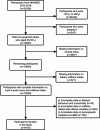Caffeine intake is nonlinearly associated with muscle mass in young and middle-aged US adults
- PMID: 39563256
- PMCID: PMC11577709
- DOI: 10.1186/s12891-024-08063-z
Caffeine intake is nonlinearly associated with muscle mass in young and middle-aged US adults
Abstract
Background: Recent studies have indicated that coffee consumption is inversely correlated with sarcopenia in the elderly population. Data regarding the association between caffeine intake and muscle mass in young adults are scarce.
Objective: We aimed to investigate how dietary caffeine correlates with muscle mass and sarcopenia in the young and middle-aged people.
Methods: We performed a cross-sectional study utilizing data from NHANES. Muscle mass was evaluated using DXA and caffeine intake was derived from 24-h dietary recalls. Multivariable regression analysis was adopted to explore association between caffeine and sarcopenia. Restricted cubic spline analysis was conducted to investigate dose-response effect of dietary caffeine on muscle mass. Mediation effect of high-sensitivity C reactive protein was examined by mediation analysis.
Results: A total of 9116 adults aged from 20 to 59 years old were included. Higher ingestion of caffeine was not associated with sarcopenia. Association between dietary caffeine and muscle mass was found to be W-shaped in males and U-shaped in young females, wherein mediation effect of hs-CRP was not discovered.
Conclusions: Caffeine consumption is associated with muscle mass in a nonlinear pattern. ASMI peaks at a daily caffeine intake of 1.23 mg/kg in young adults, while 0.64-1.49 mg/kg is recommended for middle-aged men.
Keywords: Caffeine; Muscle mass; NHANES; Sarcopenia.
© 2024. The Author(s).
Conflict of interest statement
Figures



Similar articles
-
The association between wet overactive bladder and consumption of tea, coffee, and caffeine: Results from 2005-2018 National Health and Nutrition Examination Survey.Clin Nutr. 2024 Jun;43(6):1261-1269. doi: 10.1016/j.clnu.2024.03.027. Epub 2024 Apr 16. Clin Nutr. 2024. PMID: 38653009
-
Association between serum C-reactive protein and low muscle mass among US adults: Results from NHANES 1999 to 2006.Clinics (Sao Paulo). 2025 Feb 1;80:100588. doi: 10.1016/j.clinsp.2025.100588. eCollection 2025. Clinics (Sao Paulo). 2025. PMID: 39893829 Free PMC article.
-
Association between C-reactive protein and sarcopenia: The National Health and Nutrition Examination Survey.Medicine (Baltimore). 2024 Dec 27;103(52):e41052. doi: 10.1097/MD.0000000000041052. Medicine (Baltimore). 2024. PMID: 39969369 Free PMC article.
-
Association between caffeine intake and lumbar spine bone mineral density in adults aged 20-49: A cross-sectional study.Front Endocrinol (Lausanne). 2022 Oct 17;13:1008275. doi: 10.3389/fendo.2022.1008275. eCollection 2022. Front Endocrinol (Lausanne). 2022. PMID: 36325444 Free PMC article.
-
Association of caffeine intake and sleep duration with bone mineral density: a cross-sectional study from National Health and Nutrition Examination Survey between 2011 and 2018.BMC Musculoskelet Disord. 2025 Jan 13;26(1):43. doi: 10.1186/s12891-025-08300-z. BMC Musculoskelet Disord. 2025. PMID: 39806321 Free PMC article.
Cited by
-
The diabetic neuropathy and bone mineral density in type 2 diabetes mellitus: a cross-sectional and meta-analytic study.Clin Exp Med. 2025 May 25;25(1):175. doi: 10.1007/s10238-025-01710-2. Clin Exp Med. 2025. PMID: 40415081 Free PMC article.
-
A Liposomal Strategy for Dual-Action Therapy in Sarcopenia: Co-Delivery of Caffeine and HAMA.Int J Mol Sci. 2025 Jun 24;26(13):6031. doi: 10.3390/ijms26136031. Int J Mol Sci. 2025. PMID: 40649810 Free PMC article.
References
-
- Cruz-Jentoft AJ, Sayer AA, Sarcopenia. Lancet. 2019;393(10191):2636–46. 10.1016/S0140-6736(19)31138-9 - PubMed
-
- Song E, Hwang SY, Park MJ, et al. Additive impact of diabetes and Sarcopenia on all-cause and cardiovascular mortality: a longitudinal nationwide population-based study. Metabolism. 2023;148:155678. 10.1016/j.metabol.2023.155678 - PubMed
MeSH terms
Substances
Grants and funding
LinkOut - more resources
Full Text Sources
Medical
Research Materials
Miscellaneous

